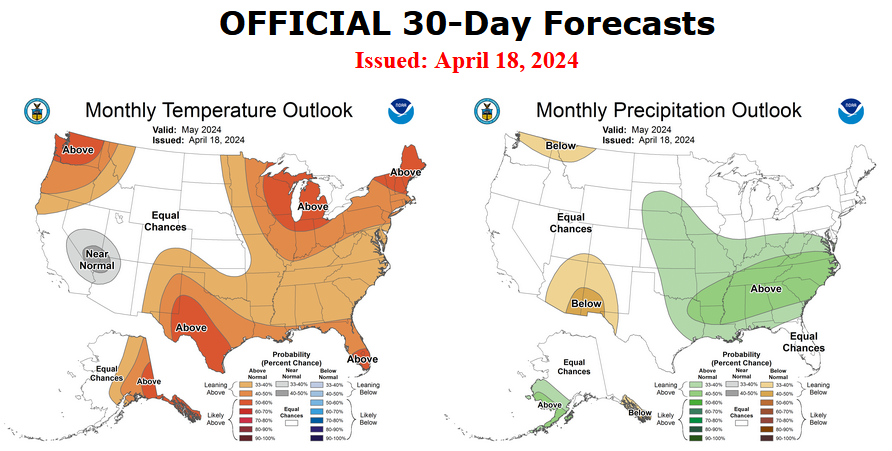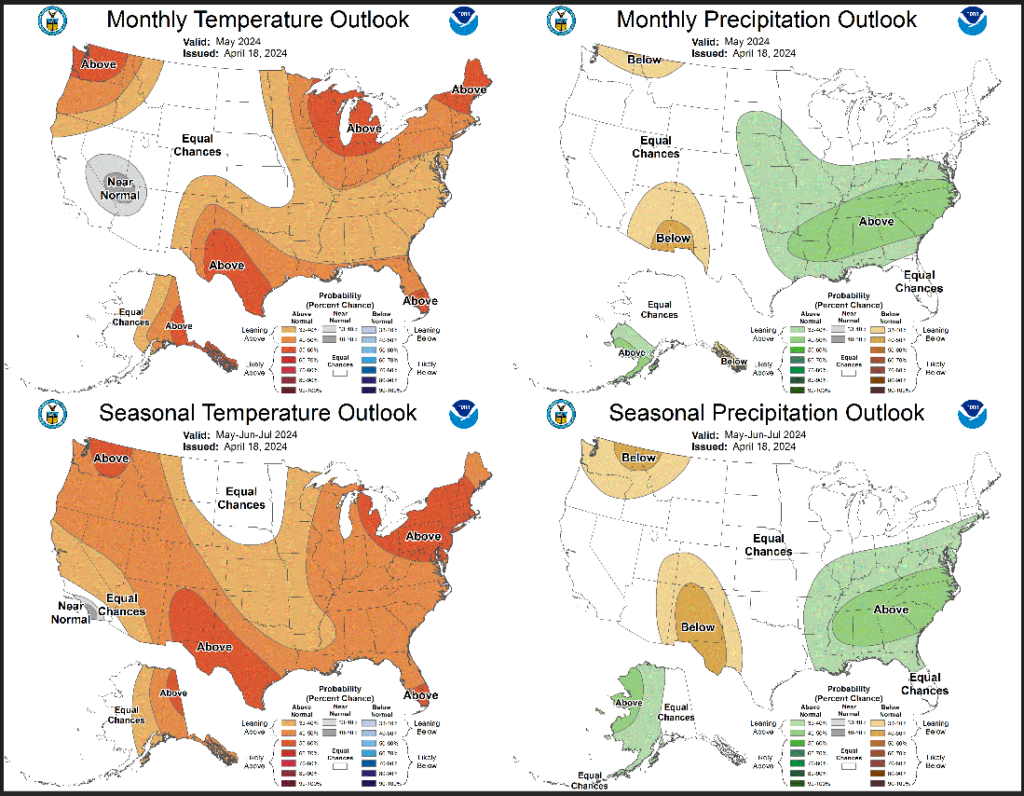NOAA Updates its Seasonal Outlook on April 18, 2024 – La Nina is Coming: Published April 19, 2024
On the third Thursday of the month right on schedule NOAA issued their updated Seasonal Outlook which I describe as their Four-Season Outlook because it extends a bit more than one year into the future. The information released also included the Mid-Month Outlook for the following month plus the weather and drought outlook for the next three months. I present the information issued by NOAA and try to add context to it. It is quite a challenge for NOAA to address the subsequent month, the subsequent three-month period as well as the twelve successive three-month periods for a year or a bit more.
With respect to the long-term part of the Outlook which I call the Four-Season Outlook, there is a rapid transition from El Nino to ENSO Neutral to LaNina. So getting the timing right is challenging. La Nina is now the likely scenario for this summer almost to the end of the forecast period. The Outlook beyond May has not been significantly changed from what was issued last month. This suggests increasing confidence in the outlook. I may write another article on the implications of this forecast for agriculture and perhaps energy usage.
First, Let’s Take a Look at the (mid-month) Outlook for May

It will be updated on the last day of April.

The top row is what is now called the Mid-Month Outlook for next month which will be updated at the end of this month. There is a temperature map and a precipitation map. The second row is a three-month outlook that includes next month. I think the outlook maps are self-explanatory. What is important to remember is that they show deviations from the current definition of normal which is the period 1991 through 2020. So this is not a forecast of the absolute value of temperature or precipitation but the change from what is defined as normal or to use the technical term “climatology”.
| Notice that the Outlook for next month and the three-month Outlook are somewhat different, especially with regard to temperature. This tells us that June and July will be different than May to some extent. |
